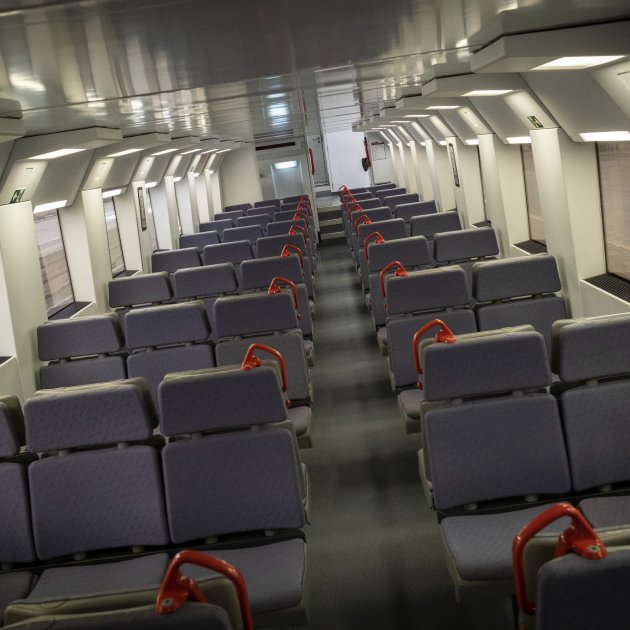For a full three hours during rush-hour this Friday morning - from the start of service at 5am until 8am - all commuter trains in the Catalan suburban network, known as Rodalies, along with conventional intercity trains running in Catalonia, were stopped. 80,000 passengers were left stranded, the majority in metropolitan Barcelona. But not even Adif, the rail infrastructure operator, knows exactly why. Its president, María Luisa Domínguez, said in a press conference this afternoon that the company will open an investigation to clarify what exactly happened this morning, but she was able to specify one aspect: the computer hard drives that were renewed only a year ago failed. The fact is that, overnight, the operator carried out an update of the software that guarantees constant communication between the trains and the control centre. What failed was not the software, but the hardware, according to Domínguez.
Now it will be Atos Unify, the specialist company in charge of installing the new versions of the software, that will analyze what exactly has happened. The president of the Spanish rail operator regretted not being able to give more details to the press. However, she assured that the operator will decide in the future if it continues to work hand in hand with this company once the investigations on the matter are finished. "It was surprising that the error was in the hardware and not in the software," she said; in addition to affirming that the latest software update had already been previously installed at the Delicias (Zaragoza) and Castellón stations.
The sequence went like this: around 1am, the specialists began to carry out an update that usually does not take more than 30 minutes. But already in the first ten minutes, they realized that something was wrong. The first intention was to revert to the existing version, but it was already impossible. The hardware had failed and thus the question of install software was irrelevant. Neither the new nor the old. Finally, nearly seven hours after the problem was detected - and after three hours of total commuter chaos in Barcelona and other Catalan centres, with 200 trains paralysed, technicians were able to install new hard drives with the latest version of the software, and that is when the system was restored. In other words, Rodalies Catalunya now works just as Adif foresaw it would have to work.
Asked if it would not have been better to do this operation at the weekend, when there are not so many travellers, the Adif president argued that these types of updates are constant. In addition, she affirmed that the directive to stop all trains was for safety reasons, due to the danger of letting them circulate without being controlled. "It's as though the planes can't communicate with the control tower," she explained.
The vice president of the Catalan government, Jordi Puigneró, did not take long this Friday to claim, once and for all, the full transfer of the Rodalies services to the Generalitat. He noted that the infrastructures managed from Catalonia do not generate as many incidents as those generated by the infrastructures managed from Spain. "The excuses for the malfunctioning of Rodalies are over, no argument is any use to us, we need to sit down to negotiate the transfer," he said in statements to Catalunya Ràdio.
In 2008, Spain's Socialist government under José Luis Rodríguez Zapatero agreed with the tripartite Catalan government on a minimum transfer of suburban rail, without including trains, stations or tracks. It only gave the Catalan authorities control over timetables and other secondary issues, and ended up being irrelevant.
